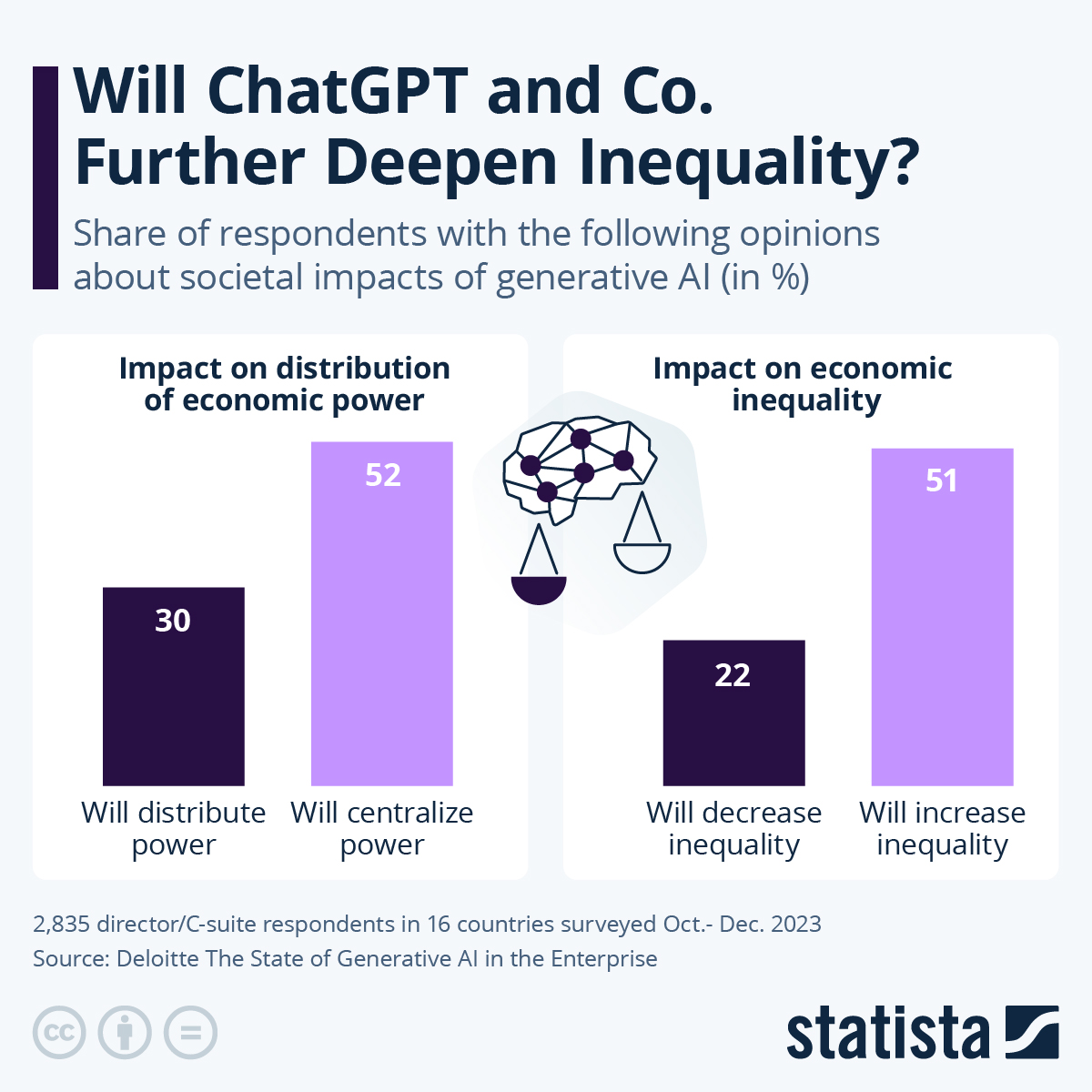
Half of all respondents with leading roles in their companies surveyed by Deloitte at the end of 2023 believe that generative AI is more likely to cause consolidation of power and increased economic equality.
Despite many decision makers seeing AI-powered media generation as positive for their own business, these results nevertheless highlight that, as Statista's Florian Zandt explains below, unchecked growth and development of ever more capable large language models might be a net negative for society.
30 percent of the 2,835 respondents surveyed over two months said generative AI will help to distribute power more fairly and reduce disenfranchisement, while 22 percent believed that economic inequality will decrease. How exactly chatbots like ChatGPT and the underlying large language models will help achieve either of the four outcomes polled by Deloitte remains unclear, since more detailed answers were outside of the survey's scope.
You will find more infographics at Statista
However, looking at the bigger picture indicates that in terms of economic power, generative AI will most likely further bolster economies with robust tech sectors and the means to source dedicated chipsets from vendors like Nvidia.
Financing data center infrastructure, whether renting out existing capacity or building and maintaining their own data centers, is also likely to be a key factor, as reporting by outlets like TechCrunch suggests. The authors of the survey believe that this will necessitate governments and regulators closely monitoring the developments in generative AI.
Governing bodies will "likely need to walk the tightrope of helping to ensure that generative AI benefits are broadly and fairly distributed, without overly hindering innovation or providing an unfair advantage to countries with different rules", according to Deloitte analysts.
Half of all respondents with leading roles in their companies surveyed by Deloitte at the end of 2023 believe that generative AI is more likely to cause consolidation of power and increased economic equality.
Despite many decision makers seeing AI-powered media generation as positive for their own business, these results nevertheless highlight that, as Statista’s Florian Zandt explains below, unchecked growth and development of ever more capable large language models might be a net negative for society.
30 percent of the 2,835 respondents surveyed over two months said generative AI will help to distribute power more fairly and reduce disenfranchisement, while 22 percent believed that economic inequality will decrease. How exactly chatbots like ChatGPT and the underlying large language models will help achieve either of the four outcomes polled by Deloitte remains unclear, since more detailed answers were outside of the survey’s scope.
You will find more infographics at Statista
However, looking at the bigger picture indicates that in terms of economic power, generative AI will most likely further bolster economies with robust tech sectors and the means to source dedicated chipsets from vendors like Nvidia.
Financing data center infrastructure, whether renting out existing capacity or building and maintaining their own data centers, is also likely to be a key factor, as reporting by outlets like TechCrunch suggests. The authors of the survey believe that this will necessitate governments and regulators closely monitoring the developments in generative AI.
Governing bodies will “likely need to walk the tightrope of helping to ensure that generative AI benefits are broadly and fairly distributed, without overly hindering innovation or providing an unfair advantage to countries with different rules”, according to Deloitte analysts.
Loading…





